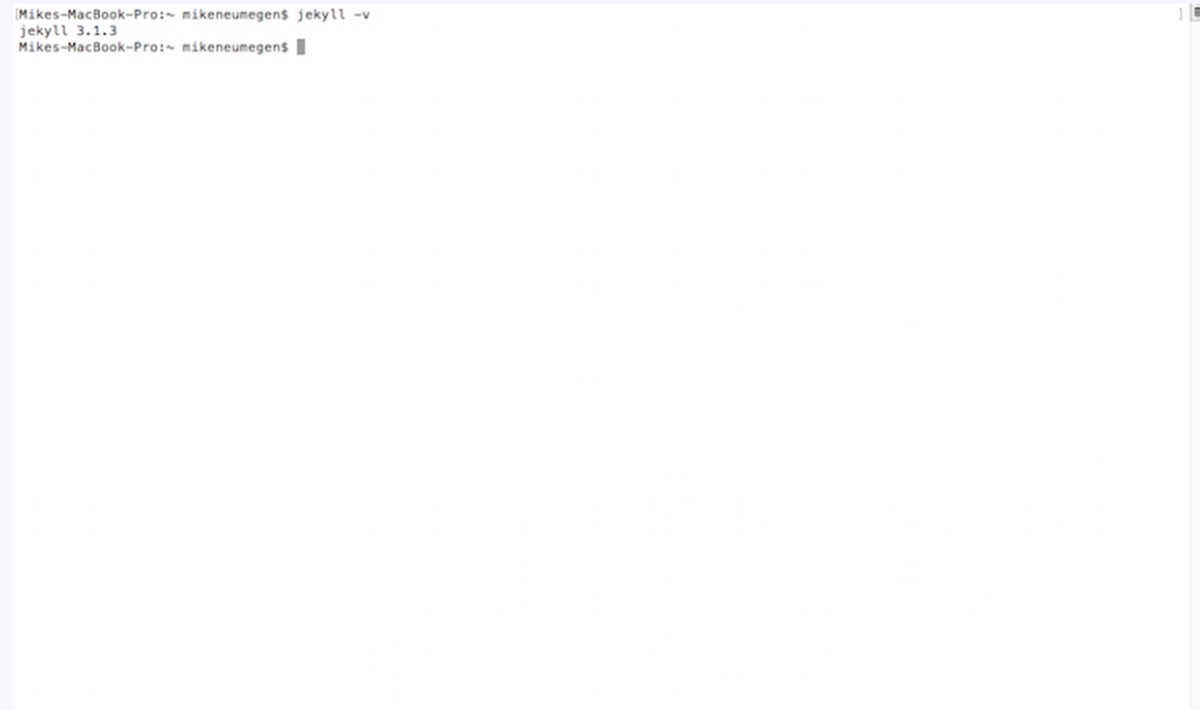How to set up Jekyll on Mac OS X in Shopify
Mac OS X, which is In this installation guide we’ll be using 10.11 El Capitan. These instructions should work for older versions of OS X but they have not but tested. OS X El Capitan (version 10.11) is the twelfth major release of OS X (now named macOS), Apple Inc.’s desktop and server operating system for Macintosh computers. It is the successor to OS X Yosemite and focuses mainly on performance, stability, and security.[2] Following the Northern California landmark-based naming scheme introduced with OS X Mavericks, El Capitan was named after a rock formation in Yosemite National Park, signifying its goal to be a refined version of Yosemite.
Jekyll gives you a lot of flexibility to customize how it builds your site. These options can either be specified in a _config.yml or _config.toml file placed in your site’s root directory or can be specified as flags for the Jekyll executable in the terminal
To run Jekyll on a site, we’ll navigate to the site’s directory in the command line, then run one of these commands. However, if you are the beginner or you are running a self-version, it is necessary for you to consider on this guiding article How to create the posts in Markdown and publish them as a blog in Shopify. This tutorial will give the Shopify store owners understandable and simple procedure to make a post in Markdown and launch it.
How to set up Jekyll on Mac OS X in Shopify
Step 1: Install commands
At the first step, the Shopify store owners are necessary to install the command-line tools to ensure that Jekyll are compiled with native extensions. By opening a terminal, it is easy to install Command Line Tools to access to commonly used tools, utilities, and compilers:
xcode-select --install
Besides, the users can choose to install it another way by:
gem install --user-install bundler jekyll
The Shopify store owners can change the default gem path by adding shell config file such as ~/.bash_profile or ~/.bashrc
Step 2: Set up Ruby
With the version of Ruby > 2.2.5, Jekyll enables working effectively. It should be installed Ruby > 2.3 for macOS Mojave 10.14. So at first, we need install Homebrew which helps the online sellers to install packages and it is a must-have item for programming on OS X:
/usr/bin/ruby -e "$(curl -fsSL https://raw.githubusercontent.com/Homebrew/install/master/install)"
Then the users can install Ruby:
brew install ruby
Finally installing Jekyll can be easy:
sudo gem install jekyll
Step 3: Check
The users can easily track the version of Jekyll are working by:
jekyll -v

Conclusion
Through this article How to set up Jekyll on Mac OS X, it is possible for any website builder to install Jekyll on their own. The Shopify store owners can also know more about Jekyll with tutorial articles such as How to build Jekyll on your site, How to set up Jekyll on Linux and How to set up Jekyll on Windows.





